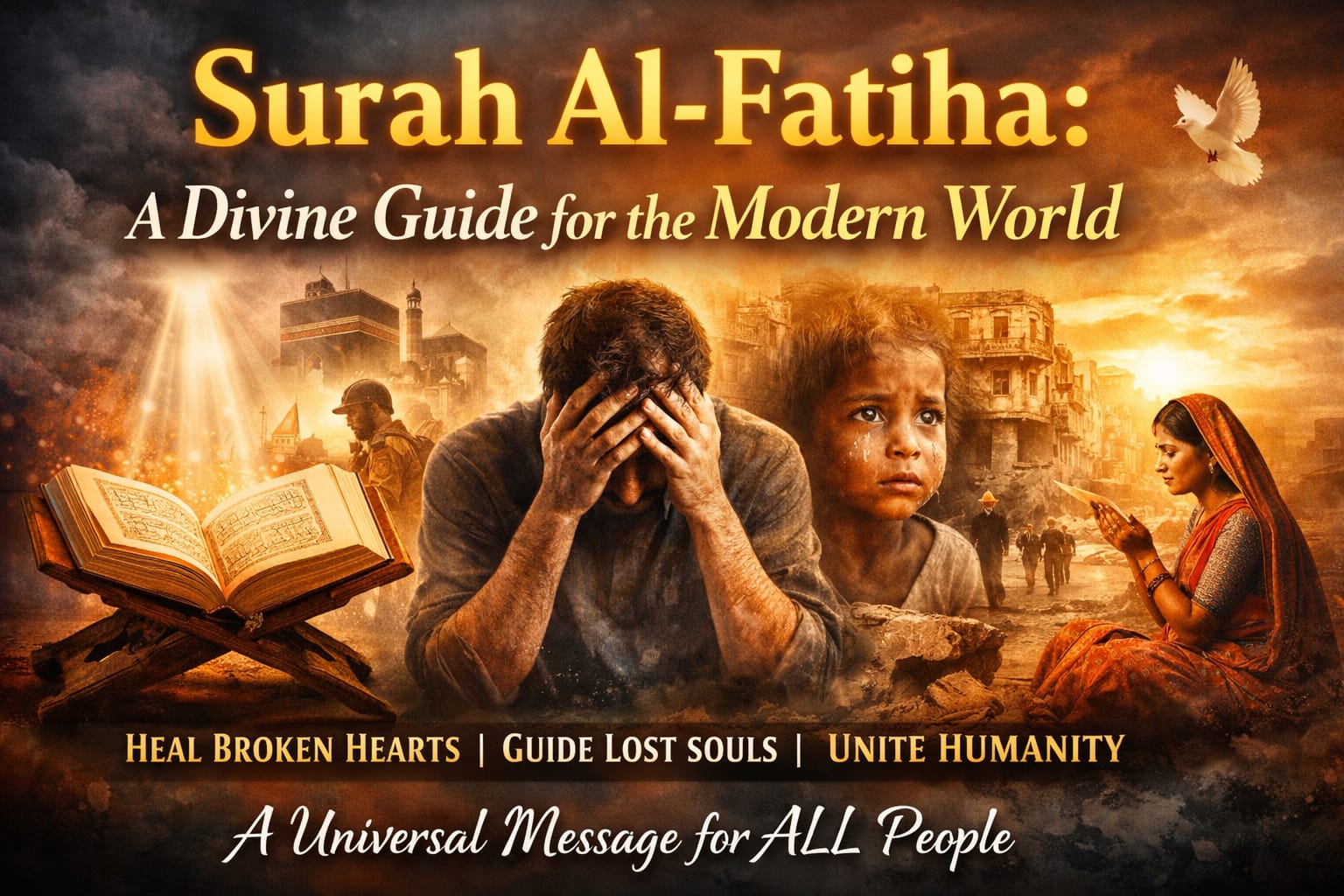Uncategorized
-
Surah Al-Fatiha Explained: A Divine Guide for the Modern World.
Surah Al-Fatiha: A Divine Call That Can Awaken the Whole Humanity Introduction: A Message the World Is Desperately Waiting For In a world full of noise, stress, competition, and confusion, humanity is silently crying for peace, meaning, and direction.People have money but no satisfaction.They have technology but no wisdom.They have freedom but no inner peace.…










